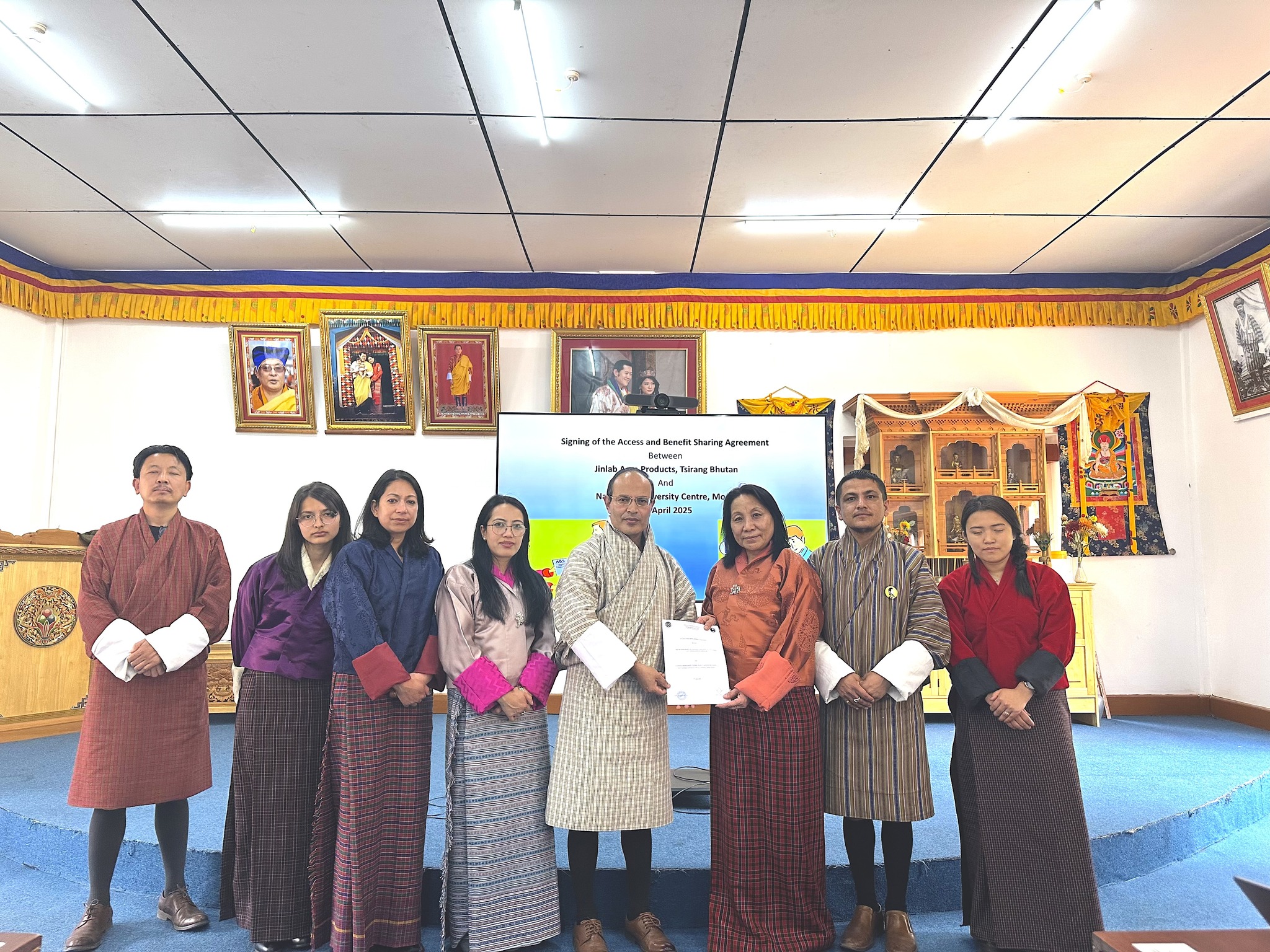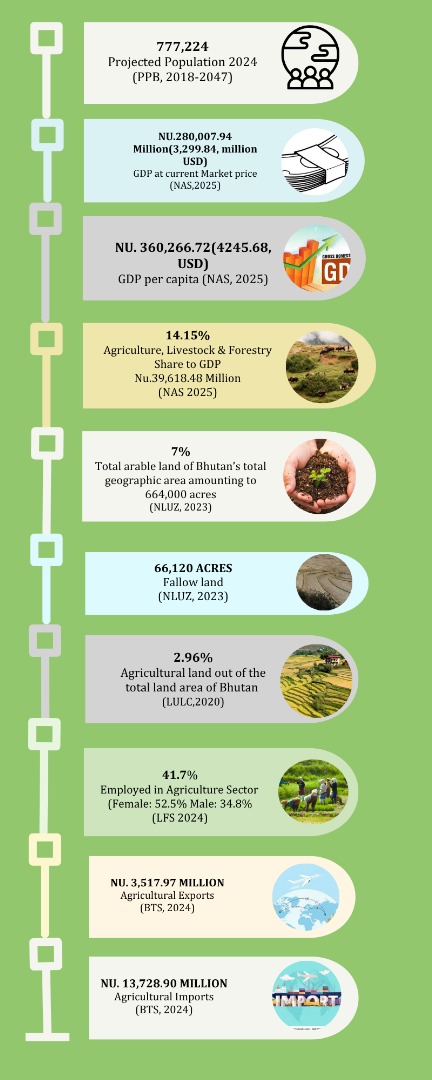31 May 2025: In a major step towards promoting sustainable and ethical utilization of Bhutan’s biological resources and traditional knowledge for nature-based product development, the National Biodiversity Centre (NBC), Ministry of Agriculture and Livestock, facilitated the signing of eight Access and Benefit Sharing (ABS) agreements between Bhutanese companies and local communities in fiscal year 2024-2025.
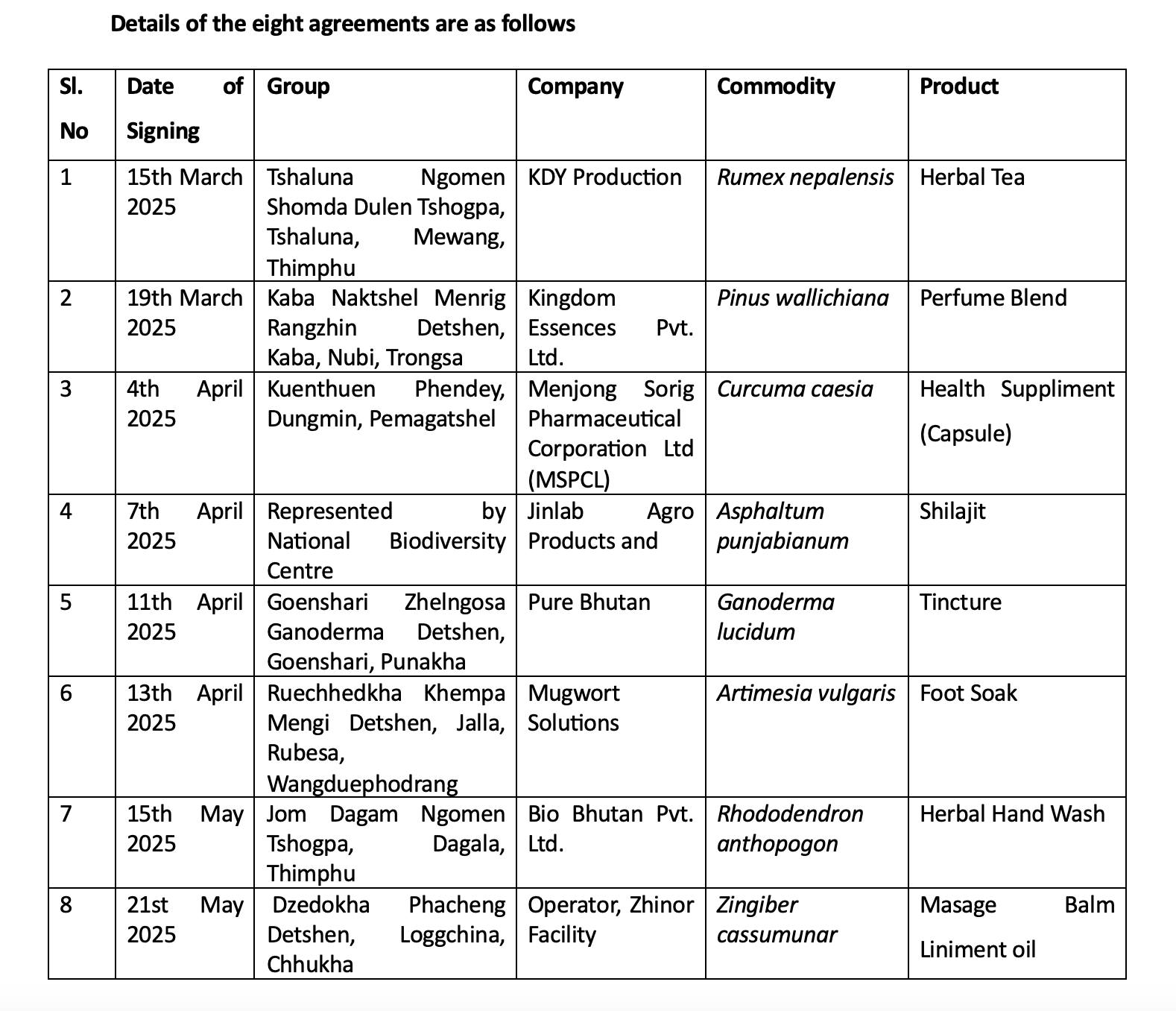
The agreements marks a milestone in operationalizing Bhutan’s ABS framework, which ensures fair and equitable sharing of benefits arising from the use of biological resources and associated traditional knowledge since communities are recognized not only as resource providers but also as co-beneficiaries.
It also demonstrates the overwelming support, growing acceptance, and commitment to the principles of ABS and responsible and ethical sourcing of Bhutan’s biological resources for nature-based products. Moreover, it serve as a model for biodiversity-based business that respects Bhutan’s rich biodiversity and the traditional knowledge of local communities, while ensuring fair and equitable sharing of benefits arising from their utilisation.

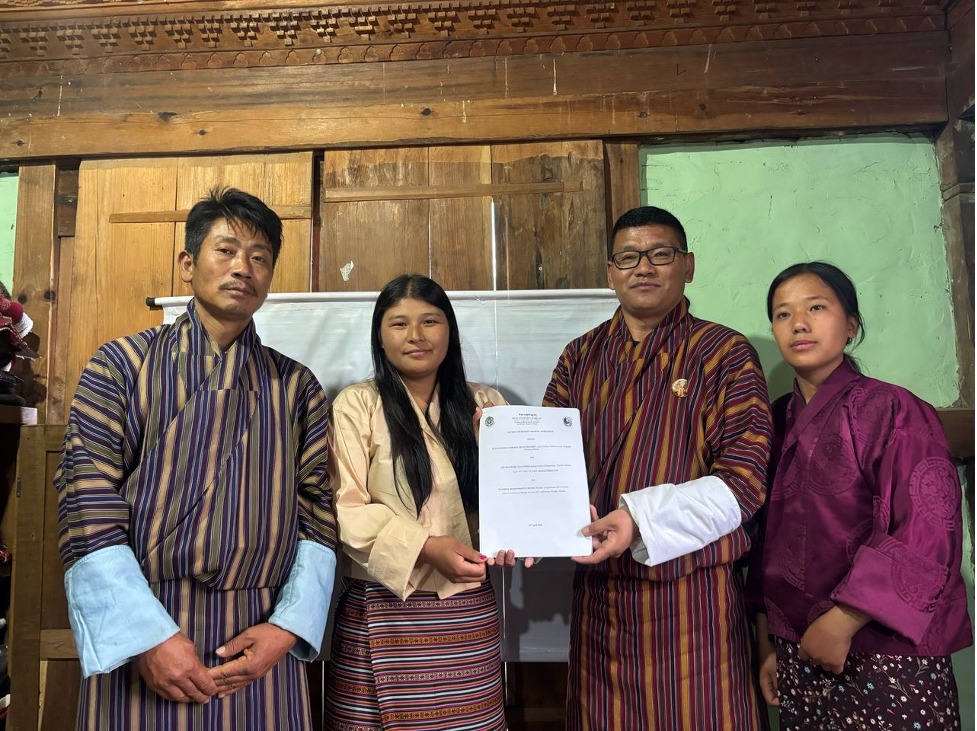
Among the eight Access and Benefit-Sharing (ABS) agreements signed in Bhutan, All the eight companies that are parties to the ABS agreements have agreed to pay fair price for the biological resources, share portion of the profit from the sale of product with the local community including contribution to the Bhutan Access and Benefit-Sharing (BABS) Fund. This ensures the equitable distribution of economic benefits derived from the use of Bhutan’s biological resources and associated traditional knowledge, while recognizing the vital role of communities as custodians of biological resources.
Beyond benefit-sharing mechanism, these agreements outline clear responsibilities for community groups and the companies, including the sustainable management of biological resources and quality and quantity of biological resources required. This mutual accountability fosters a transparent, long-term collaboration that supports both supply chain reliability for companies and livelihood enhancement for communities.
Operating a business under Bhutan’s ABS framework offers a legally compliant and ethically grounded model and promotes responsible and sustainable use of biodiversity while reinforcing fair and equitable benefit-sharing principles. These partnerships not only support community livelihoods and capacity building but also strengthen national efforts in bioprospecting and nature-based product development.
By aligning with Bhutan’s ABS mechanism, these agreements not only ensure legal compliance but also demonstrate how businesses can contribute meaningfully to community well-being and biodiversity conservation. The partnerships also serve as a model for businesses looking to align with global best practices in ethical bioprospecting and nature-based product development.
This initiative is part of the project “Scaling Bioprospecting as Nature-based Solution (NbS) for Green Mountain Livelihoods,” implemented by the National Biodiversity Centre, Ministry of Agriculture and Livestock in partnership with ICIMOD



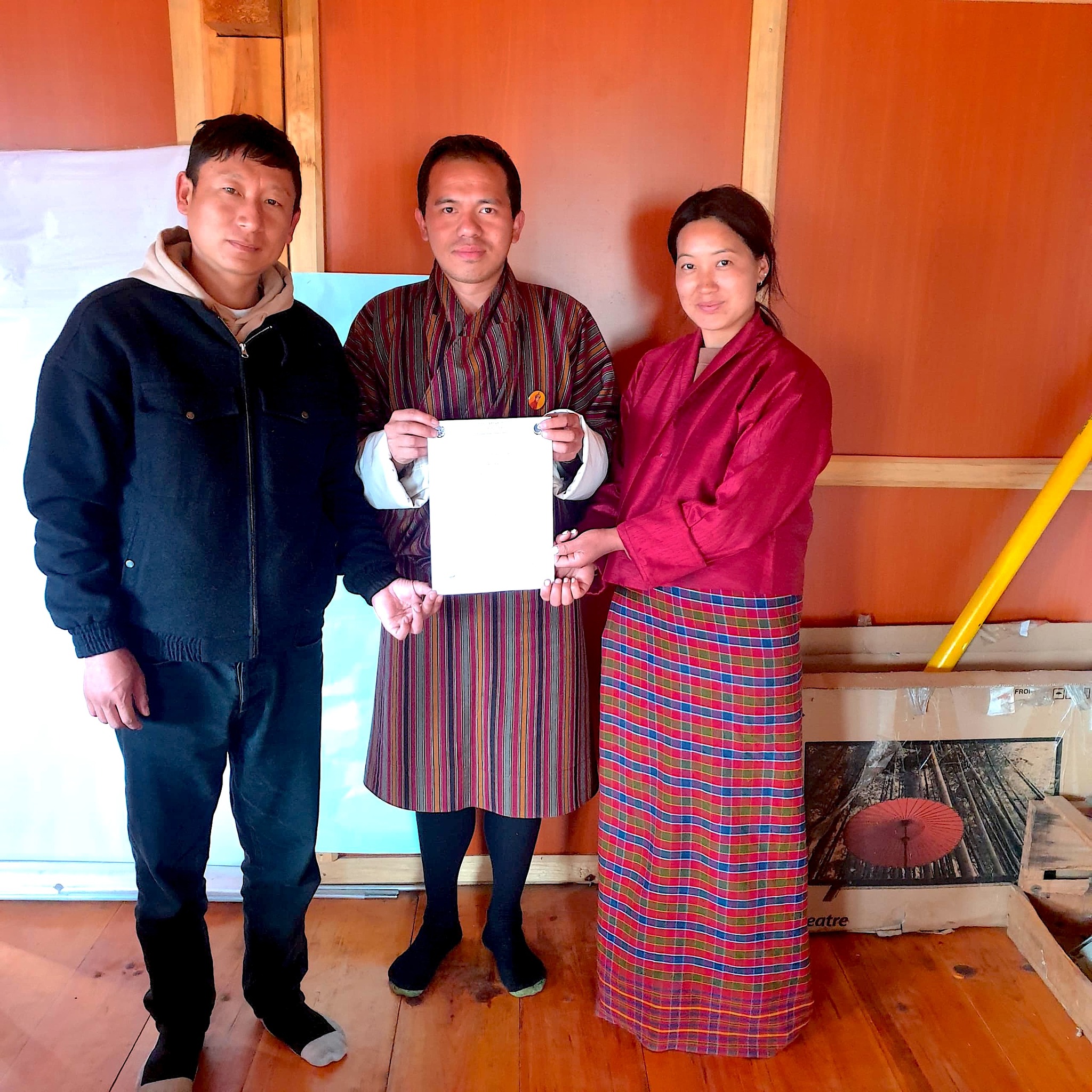

![]()

